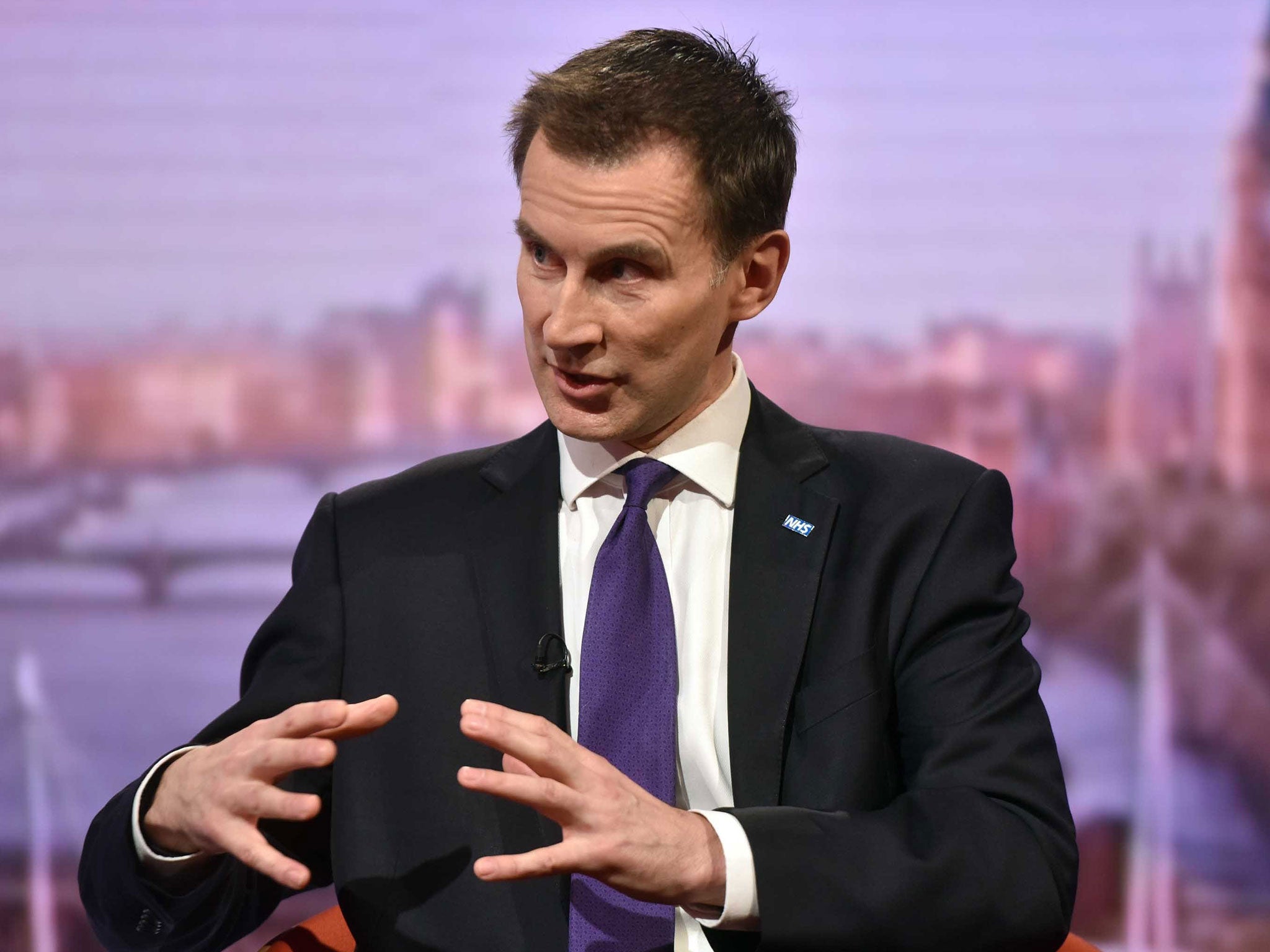Your support helps us to tell the story
This election is still a dead heat, according to most polls. In a fight with such wafer-thin margins, we need reporters on the ground talking to the people Trump and Harris are courting. Your support allows us to keep sending journalists to the story.
The Independent is trusted by 27 million Americans from across the entire political spectrum every month. Unlike many other quality news outlets, we choose not to lock you out of our reporting and analysis with paywalls. But quality journalism must still be paid for.
Help us keep bring these critical stories to light. Your support makes all the difference.
The author of a study into patient deaths cited by Jeremy Hunt has said the Health Secretary’s use of the figures was “inaccurate”.
Mr Hunt is accused of using unverified and unpublished data about patient deaths to support his arguments against junior doctors.
The Health Secretary claimed in July that around 6,000 patients a year died because of the level of NHS staffing at weekends.
Mr Hunt used this fact as part of his justification for imposing a new contract on junior doctors, which he claims will improve patient care at weekends.
But BBC News reports that the study’s author was unhappy that the figure was cited because it had not actually been checked at the time.
Emails obtained under the Freedom of Information Act by the broadcaster show the study’s author, Domenico Pagano, believed Mr Hunt was being “counterproductive”.
“It will be inaccurate and counterproductive to quote that our analysis is due to be published in the BMJ shortly, as this is not the case and may seem to interfere with the peer review process,” he wrote.
The study, ultimately published in the British Medical Journal in September last year, actually came with a warning that there was no evidence that the number of excess deaths on the weekend was linked to staff levels.
The estimate of excess deaths was also raised to 11,000 in the final version of the study.
Doctors say Mr Hunt’s new contract will actually damage patient safety by removing safeguards to prevent unsafe staffing rosters.
One study released in November last year even found evidence of what researchers dubbed a “Hunt effect” – where sick people who have listened to Mr Hunt’s claims about weekend NHS care put off going to hospital at the weekend, and die as a result.
Yesterday the British Medical Association announced three junior doctors’ strikes further strikes, each lasting 48 hours. Over 98 per cent of junior doctors who voted in the strike ballot voted in favour of stoppages.
Separately the BMA has also launched a legal challenge against the new contracts, following allegations that the Department of Health did not conduct a legally required equalities assessment on the policy.
A Department of Health spokesman said other studies supported the idea care was worse at weekends.
“This 6,000 figure was NHS England's analysis. Subsequent independent clinical studies have shown further variation in the quality of care across the week, and more recent analysis makes clear there could actually be as many as 11,000 excess deaths owing to the 'weekend effect'."
Subscribe to Independent Premium to bookmark this article
Want to bookmark your favourite articles and stories to read or reference later? Start your Independent Premium subscription today.

Join our commenting forum
Join thought-provoking conversations, follow other Independent readers and see their replies
Comments